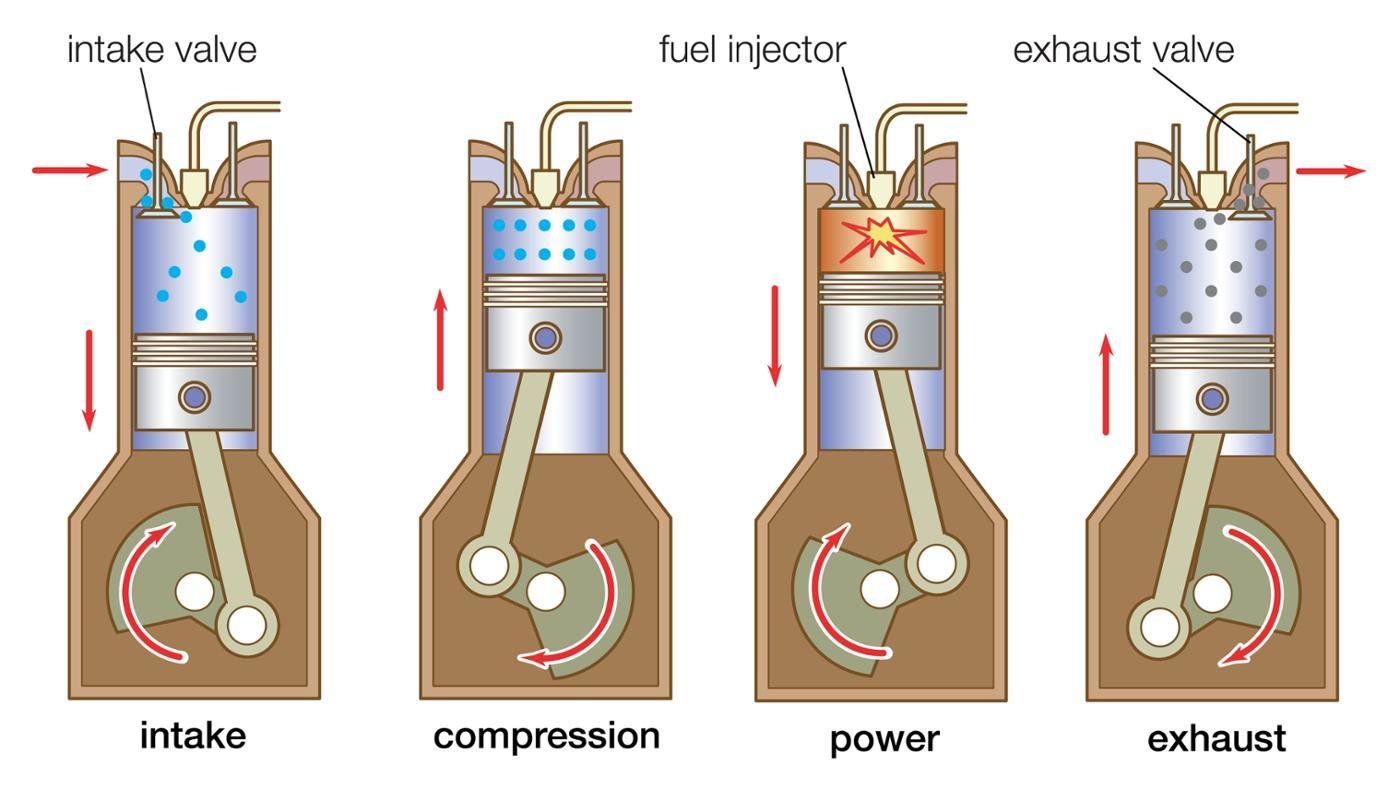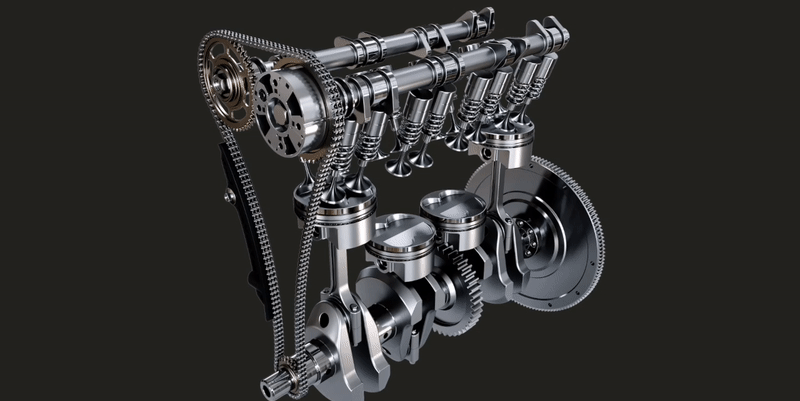Check Out a Wide Variety of Engines for every single Lorry and Objective
The auto landscape is increasingly complex, with a varied selection of engine kinds made to fulfill details efficiency and effectiveness demands across various car categories. From the high-performance engines that power sports vehicles to the fuel-efficient options tailored for day-to-day travelling, the options are huge and varied. Additionally, heavy-duty engines offer the requirements of work cars, while green choices are obtaining grip in the quest of lasting transportation. Understanding these differences is vital for making notified decisions, particularly as arising technologies proceed to shape the future of automotive design. What ramifications might these advancements hold for customers and makers alike?
Kinds Of Automotive Engines
Automotive engines can be categorized into numerous distinct types, each made to meet certain performance and effectiveness needs. The most typical groups consist of internal burning engines, electrical engines, and hybrid systems.

Electric engines, on the various other hand, operate electric power saved in batteries, offering instantaneous torque and zero discharges. These engines are coming to be progressively preferred due to innovations in battery technology and the expanding focus on sustainability.
Hybrid systems combine both inner burning and electric engines, allowing lorries to optimize fuel performance and reduce emissions by effortlessly switching over between source of power. Each engine kind offers its downsides and benefits, affecting factors such as car style, planned usage, and market need. Understanding these differences is vital for manufacturers and consumers alike when choosing the ideal engine for their specific needs.
Performance Engines for Sports Cars
Efficiency engines for cars are especially engineered to supply improved rate, agility, and power, setting them aside from conventional vehicle engines. These engines typically use advanced technologies such as turbocharging, turbo charging, and variable shutoff timing to maximize performance and responsiveness.
Commonly, efficiency engines are developed with higher compression proportions, which enable higher energy removal from fuel. This results in remarkable horse power and torque figures, enabling quick velocity and higher leading rates. The lightweight products utilized in these engines, such as light weight aluminum and carbon fiber, add to decreased total automobile weight, improving handling and maneuverability.
Engine setups like V6, V8, and even hybrid systems prevail in performance sporting activities automobiles, each offering unique benefits in terms of power delivery and driving dynamics. The adjusting of these engines is likewise crucial; several producers maximize the engine management systems to supply an exciting driving experience, often including sporting activity settings that adjust throttle action and equipment shifts.
Effective Engines for Daily Commuters
In the world of daily commuting, reliable engines play a crucial function in maximizing gas economic climate and minimizing discharges while giving dependable efficiency. As city populaces grow and environmental problems intensify, the demand for lorries geared up with effective powertrains has actually risen.
Modern engines developed for everyday travelers frequently integrate modern technologies such as turbocharging, direct fuel shot, and hybrid systems. Turbocharging improves engine performance by forcing more air into the combustion chamber, enabling click for source smaller, lighter engines that do not jeopardize power result. Direct fuel injection enhances fuel atomization, causing better combustion and boosted performance.
Crossbreed engines, incorporating inner burning with electrical power, additional boost gas economy, specifically in stop-and-go traffic, where traditional engines can suffer from inefficiencies. Electric electric motors aid throughout velocity and can operate independently at low rates, lowering total gas usage.
Furthermore, developments in engine management systems and lightweight products add substantially to effective engine design. By concentrating on performance, sturdiness, and environmental sustainability, manufacturers remain to provide engines that not only fulfill the needs of daily travelling but also line up with international efforts to minimize carbon footprints.
Heavy-Duty Engines for Work Vehicles
Heavy-duty engines for job cars are regularly engineered to deliver remarkable torque and dependability under demanding problems. These engines are developed to carry out in settings where traditional engines may fail, such as building sites, logging operations, and farming setups. The primary focus of durable engines is their capacity to create high degrees of power while preserving durability over extended periods of operation.
Normally, sturdy engines use innovative continue reading this materials and durable building and construction strategies to stand up to the roughness of hefty workloads. Functions such as reinforced cyndrical tube blocks, boosted image source cooling systems, and progressed gas injection technologies contribute to their effectiveness. These engines often operate at lower RPMs, which helps to optimize gas effectiveness while offering the necessary power for transporting and hauling.
Along with mechanical effectiveness, durable engines are commonly furnished with innovative digital control systems (ECUs) that manage efficiency, exhausts, and diagnostics. This integration enables for much better tracking and upkeep, ensuring that job vehicles stay operational and effective.
Eventually, heavy-duty engines are a vital element in the productivity of various sectors, supplying the needed power and reliability to tackle the hardest of tasks.
Eco-Friendly Engine Options
The growing emphasis on sustainability has actually caused the advancement of environmentally friendly engine choices that prioritize decreased discharges and improved gas efficiency. These engines are made to lessen the ecological effect of cars while still delivering the performance and reliability expected by consumers.
Among one of the most noteworthy environmentally friendly alternatives are electric and hybrid engines. Crossbreed engines combine conventional interior burning engines with electric propulsion, permitting decreased gas usage and lower greenhouse gas exhausts. Electric engines, on the other hand, run totally on battery power, creating zero tailpipe discharges and adding to cleaner air top quality.
One more encouraging growth is the innovation of biofuel engines, which utilize sustainable resources, such as plant products, to power automobiles (Engines For Africa). By using biofuels, these engines can reduce dependence on fossil gas and reduced total carbon footprints

As the automotive sector evolves, green engine choices will certainly play a critical duty in driving the change towards more sustainable transport remedies.
Verdict
From high-performance engines that improve sporting activities vehicle capabilities to efficient models prioritizing fuel economic situation for everyday commuters, each kind offers a details feature. Sturdy engines cater to robust work vehicles, while environment-friendly alternatives, such as electrical and biofuel engines, advertise sustainable transportation.
